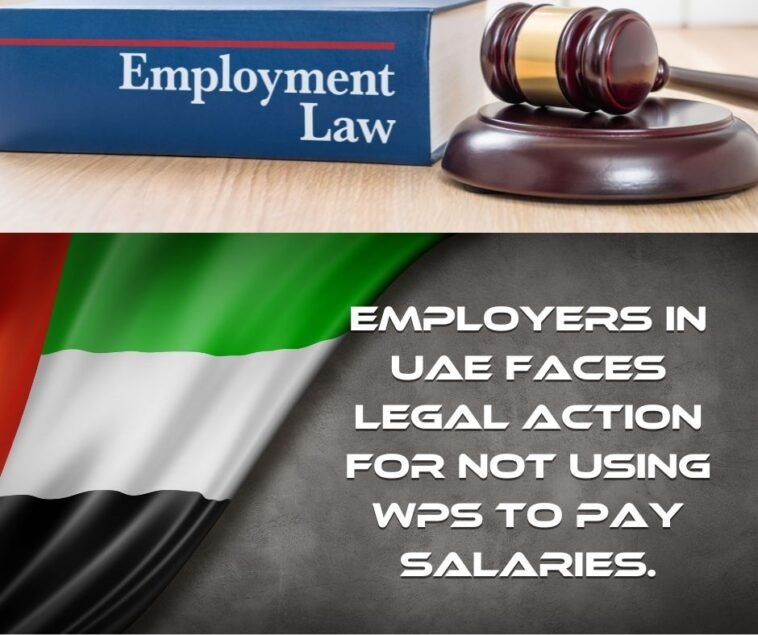The United Arab Emirates (UAE) has taken strong measures to ensure that companies fulfill their responsibility of paying salaries to their employees through the Wages Protection System (WPS). In fact, over 3,000 companies have been referred to the Public Prosecution for failing to comply with this requirement, highlighting the seriousness with which the government addresses this issue.
To enforce timely salary payments, the UAE government introduced rules that businesses must adhere to. One of these rules is the utilization of the Wages Protection System, which is an electronic payment system that operates through approved banks. This system provides a transparent and reliable means for employers to disburse salaries to their workforce.
The Ministry of Human Resources and Emiratisation (Mohre) plays a crucial role in monitoring companies and their adherence to labor laws. They maintain an extensive database by conducting both physical visits and electronic inspections of businesses across various sectors. In the previous year alone, Mohre conducted over 612,000 inspections on private sector establishments.
During these inspections, more than 12,000 violations were identified, leading to the issuance of administrative fines. The violations encompassed a range of areas, including non-compliance with employment requirements, occupational health and safety guidelines, WPS regulations, and accommodation standards. Additionally, some companies were found to be in violation of the mid-day break policy during the summer. Other infractions involved non-compliance with regulations related to contracts, work permits, hiring workers without proper licenses or through temporary agencies, falsely claiming Emiratisation, and retaining official documents belonging to domestic workers.
Recognizing the need for enhanced efficiency and transparency, the Ministry of Human Resources and Emiratisation has implemented online tools to streamline inspection processes. These tools contribute to more accurate assessments and facilitate prompt action against violators.
Ayesha Belharfia, the acting undersecretary for Emiratisation Affairs and assistant undersecretary for Labour Affairs, highlights the ministry’s commitment to resolving labor complaints amicably. In fact, approximately 81% of labor disputes were successfully resolved through amicable means in the previous year. For the remaining 19% of cases, they were referred to labor courts to ensure fair resolution.
Belharfia further emphasizes the ministry’s dedication to protecting the rights of both employers and employees, emphasizing the importance of fair treatment for all. This commitment not only upholds the country’s reputation as an attractive place to live, invest, and work, but also supports its competitive and flexible labor market. The UAE’s labor regulatory framework is aligned with international labor agreements, underscoring its commitment to international standards.
To facilitate a seamless complaint handling process, the ministry has established a system that allows people to easily submit and manage complaints. Legal researchers handle these complaints transparently and impartially, striving to find mutually satisfactory solutions that save time and effort for all parties involved. This approach benefits both complainants and labor courts in achieving timely resolutions.
Overall, the UAE’s efforts to enforce salary payments and protect labor rights demonstrate its commitment to maintaining a fair and harmonious work environment, ensuring the well-being of employees and fostering a conducive business landscape.
Please Subscribe Us to get updated with Qatar News, Saudi News, Kuwait News, Health News, UAE News, Iqama, Visa, Jobs, Banking and More.



